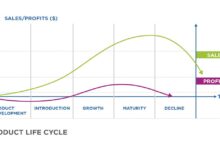Sales Tax in Texas: 7 Shocking Facts You Must Know
If you’re living in or doing business in Texas, understanding the sales tax in Texas is crucial. Unlike most states, Texas doesn’t have a personal income tax—but it makes up for it with one of the highest combined sales tax rates in the U.S. Let’s dive into everything you need to know about how sales tax works in the Lone Star State.
Sales Tax in Texas: An Overview of the System

The sales tax in Texas operates under a decentralized model, where the state sets a base rate and local jurisdictions can add their own surcharges. This creates a patchwork of rates across cities, counties, and special districts. The Texas Comptroller of Public Accounts oversees the administration of the tax, ensuring compliance from businesses and collecting revenue for public services.
State vs. Local Sales Tax Components
The Texas state sales and use tax rate is currently 6.25%. However, local taxing jurisdictions—including cities, counties, special purpose districts, and transit authorities—can impose additional sales and use taxes up to 2%. When combined, the total maximum possible sales tax rate reaches 8.25%.
- State rate: 6.25%
- Local rate: Up to 2%
- Total maximum: 8.25%
This means that while the base rate is fixed, the actual rate a consumer pays depends heavily on their location. For example, a purchase in downtown Houston may be taxed at 8.25%, while a rural area might only charge 6.25% if no local taxes are added.
Which Transactions Are Taxable?
In Texas, sales tax applies to most tangible personal property and select services. Common taxable items include clothing, electronics, furniture, and vehicles. However, not all goods are taxed equally. For instance, food and groceries are generally taxable, but prescription medications and certain agricultural supplies are exempt.
As of recent updates, some services that were traditionally non-taxable are now subject to sales tax if they are bundled with a tangible product. The Texas Comptroller has been expanding the scope of taxable services, particularly in digital and repair sectors.
“Texas relies heavily on consumption-based taxation, making the sales tax in Texas a cornerstone of state revenue.” — Texas Comptroller’s Office
Sales Tax in Texas: How Rates Vary by City
One of the most complex aspects of the sales tax in Texas is the variation in rates from city to city. Because local governments can add their own tax, consumers and businesses must be aware of the exact rate in their specific ZIP code.
Major Cities and Their Combined Rates
Here’s a breakdown of combined sales tax rates in some of Texas’s largest cities:
- Austin: 8.25% (6.25% state + 2% local)
- Dallas: 8.25% (6.25% state + 2% local)
- Houston: 8.25% (6.25% state + 2% local)
- San Antonio: 8.25% (6.25% state + 2% local)
- Fort Worth: 8.25% (6.25% state + 2% local)
While these major cities all max out at the 8.25% cap, smaller towns and rural areas may have lower rates. For example, some unincorporated areas only charge the state rate of 6.25%.
How to Find Your Local Sales Tax Rate
The Texas Comptroller provides an online sales tax rate lookup tool that allows users to search by address, ZIP code, or jurisdiction. This is essential for businesses setting up point-of-sale systems and for consumers who want to verify what they’re being charged.
Additionally, third-party services like TaxJar and Avalara integrate Texas tax data into their platforms, helping e-commerce businesses automate tax calculations.
Sales Tax in Texas: Exemptions and Special Cases
While Texas imposes a broad sales tax, there are numerous exemptions designed to reduce the burden on essential goods, nonprofit organizations, and specific industries.
Common Exemptions for Consumers
Not all purchases are subject to sales tax in Texas. Key exemptions include:
- Prescription medications
- Most groceries (but not prepared food)
- Items used in manufacturing or agricultural production
- Purchases made by qualifying nonprofit organizations
- Federal government purchases
It’s important to note that while groceries are exempt from sales tax, prepared food from restaurants, food trucks, and grocery store hot bars is taxable. This distinction often confuses consumers.
Exemption Certificates and How to Use Them
Businesses that qualify for exemptions must provide a properly completed exemption certificate to the seller. The most common form is the Texas Sales and Use Tax Exemption Certificate (Form 01-339). This form must be filled out accurately and retained by the seller for audit purposes.
For example, a manufacturer purchasing machinery for production can claim exemption if the equipment will be used directly in manufacturing. However, office supplies used in administrative functions are still taxable.
Collecting and Remitting Sales Tax in Texas
Businesses operating in Texas must register with the Texas Comptroller to collect and remit sales tax. This applies to both brick-and-mortar stores and online retailers with economic nexus in the state.
Registration Process for Sellers
To begin collecting sales tax in Texas, businesses must register through the Texas Online Tax Registration Application. The process requires:
- Business identification information (EIN or SSN)
- Physical and mailing addresses
- Details about the type of business and products sold
- Estimated monthly sales tax liability
Once registered, the business receives a sales tax permit and is assigned a filing frequency—monthly, quarterly, or annually—based on expected tax volume.
Filing and Payment Deadlines
Sales tax returns are due on the 20th of the month following the reporting period. For example, a monthly filer must submit their return by February 20th for January sales.
Late filings incur penalties: 5% of the tax due if paid within one month of the due date, and an additional 5% if paid more than one month late. Interest is also charged on overdue amounts.
Businesses can file and pay online via the Texas Comptroller’s eSystems portal, which supports electronic payments and return submissions.
Sales Tax in Texas: Nexus and E-Commerce Rules
With the rise of online shopping, Texas has updated its rules to ensure out-of-state sellers contribute to the sales tax in Texas when they have sufficient connection (nexus) with the state.
Economic Nexus Thresholds
Following the U.S. Supreme Court’s decision in South Dakota v. Wayfair, Inc. (2018), Texas adopted economic nexus standards. Out-of-state sellers must collect and remit sales tax if, in the previous calendar year or the current year, they have:
- More than $100,000 in Texas sales, OR
- 200 or more separate transactions into Texas
This means even businesses without a physical presence in Texas must comply if they meet these thresholds.
Marketplace Facilitator Rules
Texas also requires marketplace facilitators—like Amazon, eBay, and Etsy—to collect and remit sales tax on behalf of third-party sellers if the facilitator meets the economic nexus criteria. This simplifies compliance for small sellers who use these platforms.
However, sellers are still responsible for verifying that the marketplace is handling tax collection. If not, the seller must register and file independently.
Sales Tax in Texas: Audits and Compliance Risks
The Texas Comptroller conducts regular audits to ensure compliance with sales tax laws. These audits can be triggered by discrepancies in filings, random selection, or whistleblower reports.
What Triggers a Sales Tax Audit?
Common red flags that may lead to an audit include:
- Inconsistent reporting between periods
- High exemption claim rates
- Failure to collect tax on taxable services
- Underreporting of online sales
- Late or missing returns
Audits typically cover a three-year period, though this can be extended if fraud is suspected.
How to Prepare for an Audit
Businesses should maintain organized records, including:
- Sales invoices and receipts
- Exemption certificates
- Bank statements and accounting ledgers
- Point-of-sale system reports
During an audit, the Comptroller’s staff will review these documents to verify tax collected, exemptions claimed, and remittance accuracy. Discrepancies may result in back taxes, penalties, and interest.
Sales Tax in Texas: Recent Changes and Future Trends
The landscape of sales tax in Texas is evolving, especially with digital commerce and legislative updates.
2023–2024 Legislative Updates
In 2023, Texas lawmakers considered several bills related to sales tax, including proposals to:
- Expand tax exemptions for energy-efficient appliances
- Clarify tax treatment of digital products and streaming services
- Adjust local tax allocation formulas
While not all proposals passed, the discussion signals growing attention to modernizing the tax code for the digital economy.
Future of Local Option Taxes
Some cities are exploring the creation of new special purpose districts to fund infrastructure or public safety through additional sales tax. These require voter approval and are typically limited to specific geographic areas.
For example, in 2022, voters in a Dallas suburb approved a 0.5% sales tax increase to fund road improvements. Such measures could lead to even more variation in local rates across Texas.
Sales Tax in Texas: Tips for Businesses and Consumers
Whether you’re a business owner or a shopper, understanding the nuances of the sales tax in Texas can save you time, money, and legal trouble.
Best Practices for Businesses
To stay compliant and avoid penalties, businesses should:
- Register for a sales tax permit before making taxable sales
- Use automated tax software to calculate correct rates
- Train staff on exemption certificate procedures
- File returns on time, even if no tax is due
- Keep records for at least four years
Regularly reviewing the Texas Comptroller’s updates ensures you’re aware of new rules or rate changes.
Smart Shopping Tips for Consumers
Consumers can minimize their tax burden by:
- Taking advantage of the annual sales tax holiday (typically in August for school supplies and clothing)
- Understanding what’s exempt (e.g., groceries vs. prepared food)
- Checking receipts for correct tax application
- Reporting suspected undercharging or overcharging to the Comptroller
During the tax-free weekend, qualifying clothing, backpacks, and school supplies under $100 are exempt from all state and local sales taxes—a savings of up to 8.25%.
What is the current sales tax rate in Texas?
The base state sales tax rate in Texas is 6.25%, but with local taxes, the total rate can be as high as 8.25%. The exact rate depends on the city, county, and special district where the purchase is made.
Are groceries taxed in Texas?
No, most unprepared grocery items are exempt from sales tax in Texas. However, prepared food, restaurant meals, and snacks sold in convenience stores are taxable.
Do I need to collect sales tax if I sell online to Texas customers?
Yes, if you meet the economic nexus threshold: more than $100,000 in sales or 200 transactions into Texas in a year. You must then register, collect, and remit sales tax to the Texas Comptroller.
What items are exempt from sales tax in Texas?
Exempt items include prescription medications, most groceries, goods used in manufacturing, and purchases by qualifying nonprofits. Exemption certificates must be provided for business-related exemptions.
When are sales tax returns due in Texas?
Sales tax returns are due on the 20th of the month following the reporting period. Monthly filers pay by the 20th of the next month; quarterly filers have deadlines in January, April, July, and October.
Understanding the sales tax in Texas is essential for anyone doing business or making purchases in the state. From the base rate of 6.25% to local surcharges pushing totals to 8.25%, the system is both broad and complex. Exemptions, e-commerce rules, and compliance requirements add layers that both consumers and businesses must navigate. By staying informed, using official tools, and following best practices, you can ensure you’re paying or collecting the right amount of tax—no more, no less.
Further Reading:


